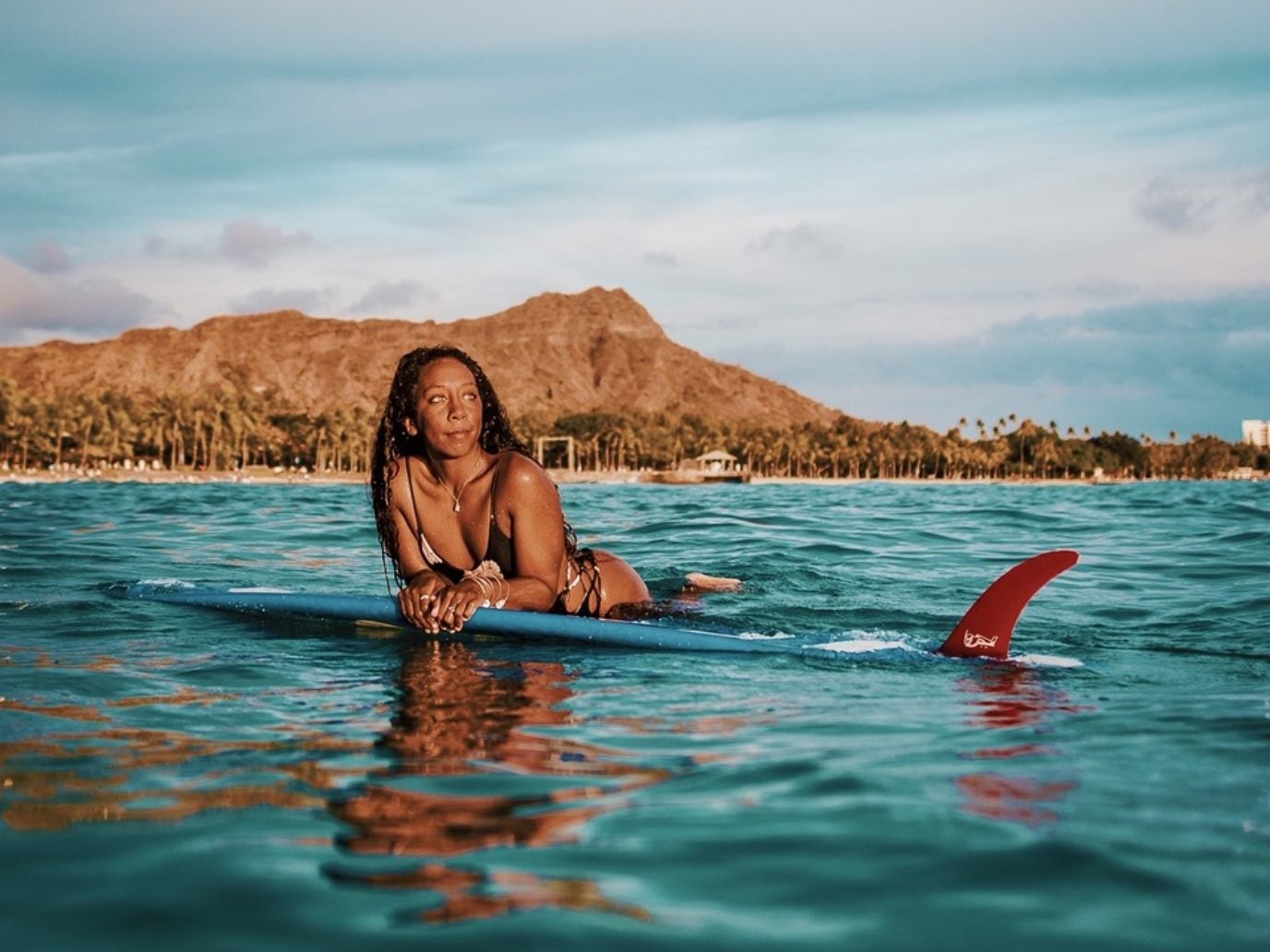
You may have seen this beauty surfing into your Instagram timeline. But if you haven’t, then it’s most certainly time to give her a follow.
Dominique “Nique” Miller isn’t your average girl; this melanin-blessed goddess is internationally ranked among the top 10 female competitive stand-up paddle surfers in the Association of Paddlesurf Professionals (Paddlesurf is similar to the more recognized longboard surfing, where Miller also competes, but SUP uses a paddle to help surfers maneuver on the waves).
“Last year, I finished fifth in the world. This year, I really want to finish third—or win the title,” says the ambitious Miller, who is one of few black professional surfers in the sport. “I’ve won a lot of different local contests for longboard and stand-up. Here in Hawaii, everyone’s really accepting and everyone’s really supportive, especially in the community I live in, Waikiki. It’s a super supportive community.”
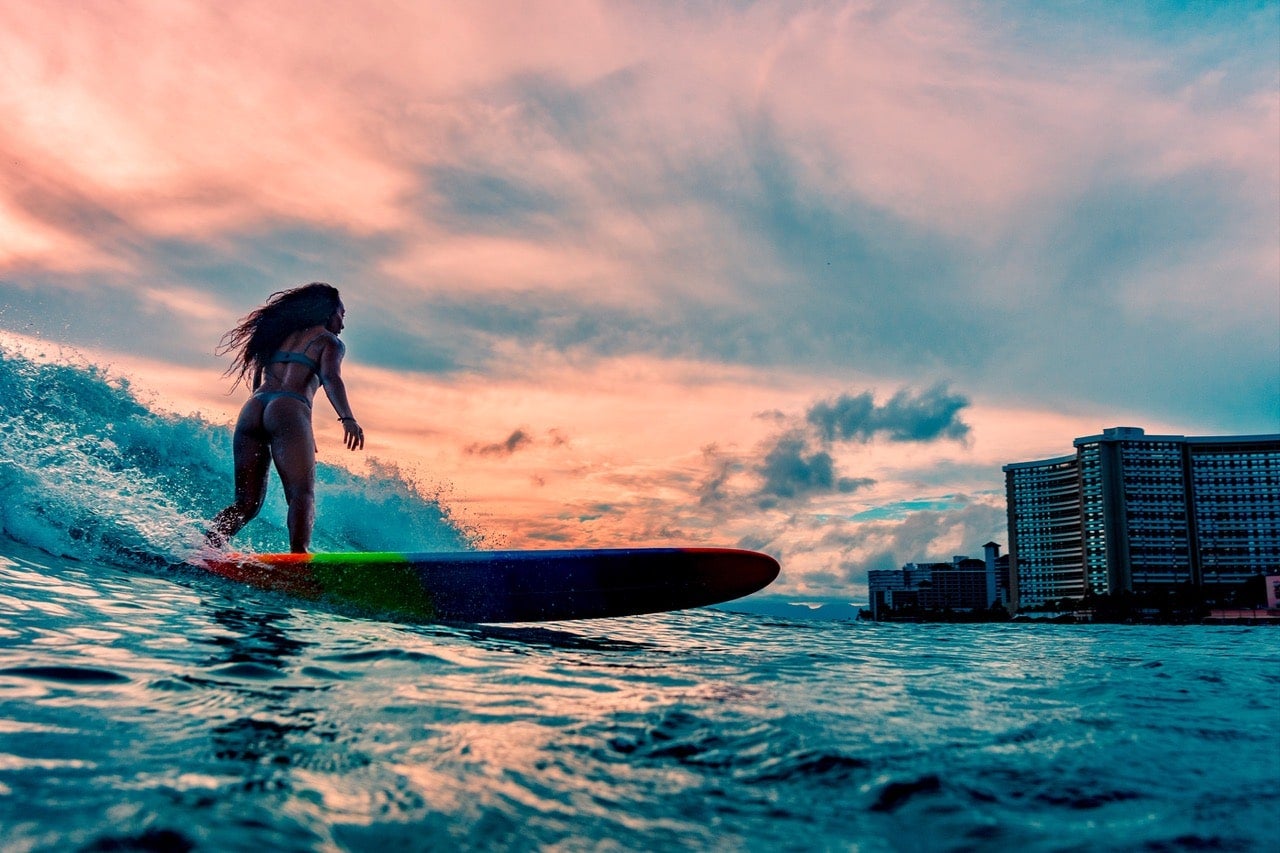
There’s no denying that the salt life suits her. She looks innately comfortable slicing through ocean waves on her surfboard, rocking her signature look of sun-soaked natural curls and golden-brown skin. But believe it or not, Miller’s only been surfing for a few years. While many of the world champion surfers have grown up in surf communities and therefore are fully immersed in the sport since early childhood, Miller grew up in South Texas and Michigan.
She actually developed her athletic prowess in other sports. She was an All-State high school lacrosse athlete. And as a decorated high school cross-country star, Miller was ranked in the nation. Seeking a drastic life change, Miller accepted an athletic scholarship to run for the University of Hawaii’s track program. And of course, only miles from the shores of the birthplace of surfing, it was inevitable that she try her hand at the popular water sport.
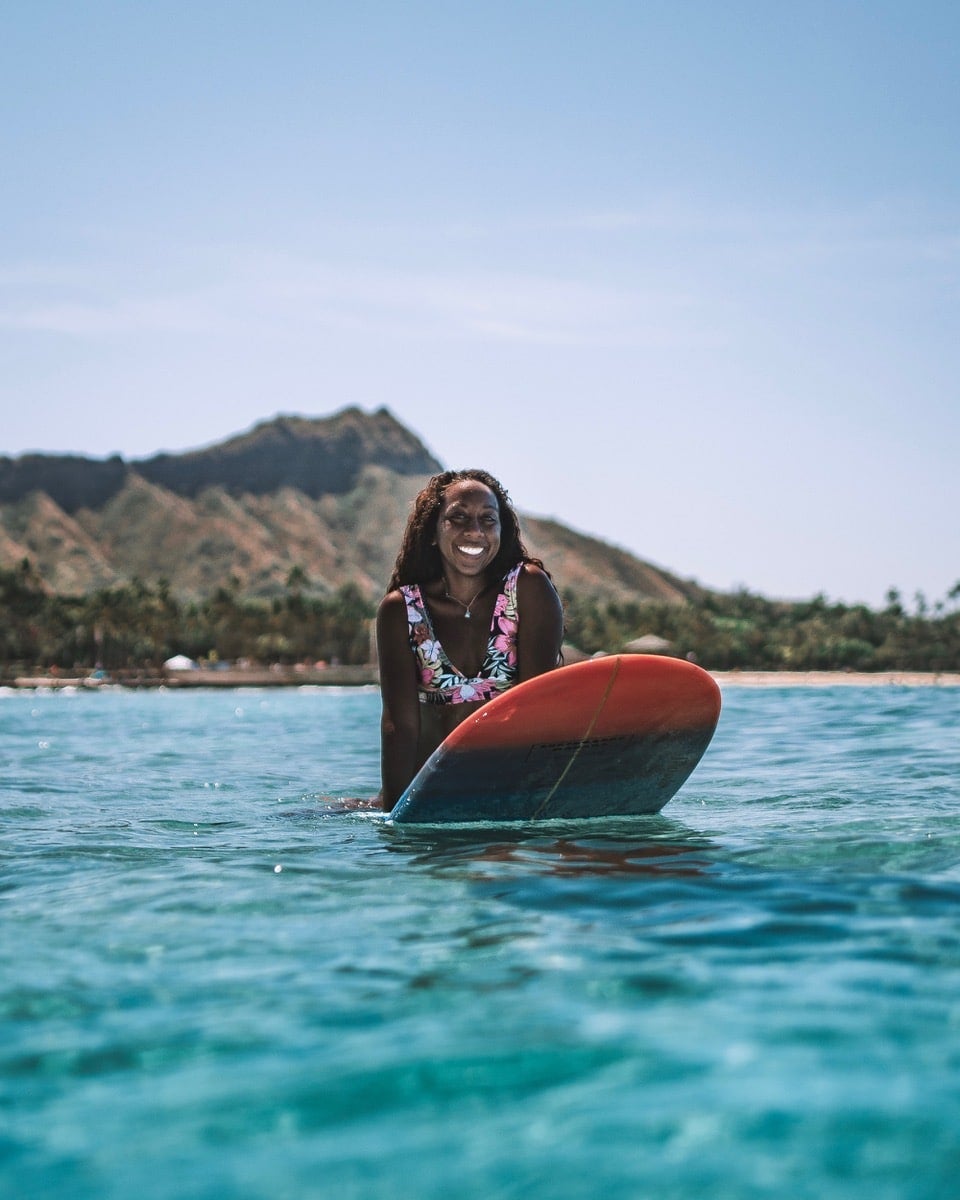
“I really love the ocean. I absolutely love swimming and diving for shells,” says Miller, who was enrolled in swim classes at an early age because her mother didn’t know how to swim and wanted her children to grow up without fear of water. “I was just always drawn to it. And then my friends started surfing, and I kind of wanted to do it, too. So, I was out there. I’m a very competitive person, so I wanted to get better. I wanted to be the best person.”
Miller said she taught herself how to surf by watching others. The natural athlete in her took care of the rest. In a matter of months, the then 18-year-old Miller found herself in a competition at the urging of friends and fellow surfers. And after placing and winning that and other competitions, she began to make a name in the sport.
“Whenever I was out there, it just made me so happy,” she says. “That’s just where I belonged, you know? It’s the best feeling, catching waves and surfing.”
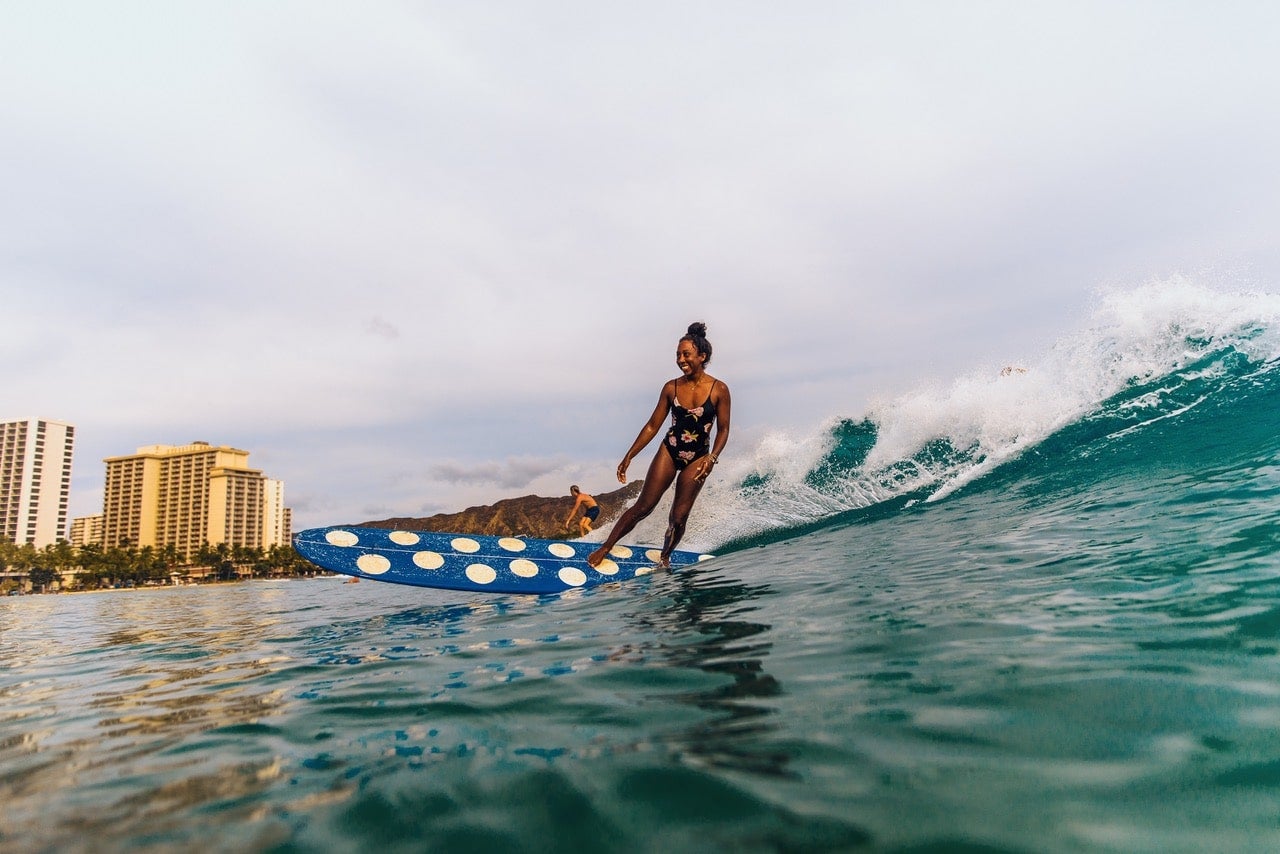
And surfing hasn’t just been good for her soul, the Hawaii community has helped her find self-love and acceptance after a childhood of complexion insecurities. Miller, who is of both African-American and Mexican-American descent, was raised by her single Mexican-American mother in a predominately Hispanic community in Texas. While she always felt different, her biracial background became even more pronounced when she moved to a small suburb in Michigan for her high school years. Here, in a predominately white classroom, Miller started feeling a little more insecure about her skin tone, hair, and otherness.
“When I was in high school in Michigan, out of 1,100 kids there were only four other black kids, but they were all half like me and they were all really light. I was the darkest kid in my school,” she says. “I never went to prom with a date or anything because…I just felt looking like me, that wasn’t pretty; that wasn’t cool.”
In an effort to blend in, Miller avoided staying out in the sun and even considered bleaching creams. She admits it really took a toll on her self-esteem.
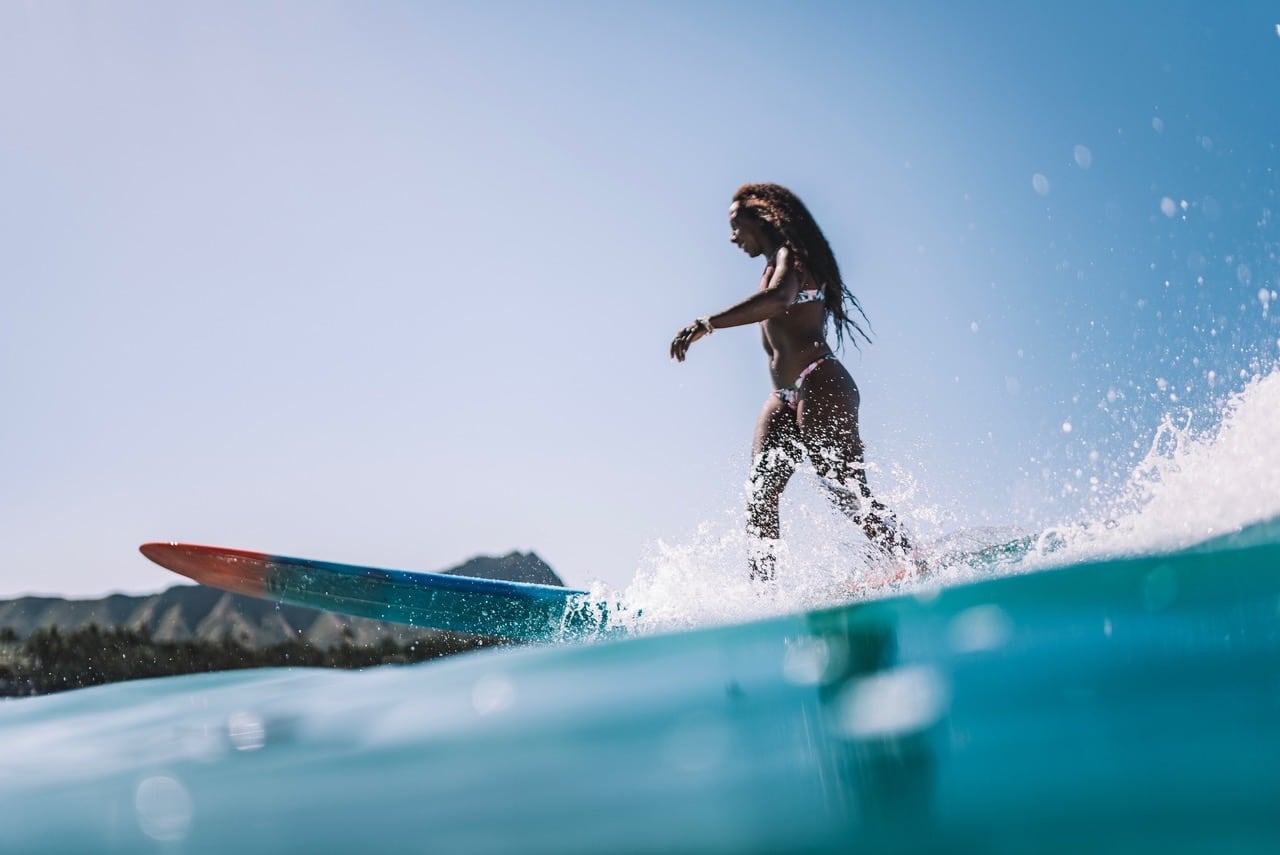
“But when I moved to Hawaii, that was the first time in my life where I had people coming up to me like, ‘Oh, my God, your skin is so beautiful.’ ‘Oh, my God, I love your hair,’ I’ve never felt anyone being racist toward me or talking down to me,” she recalls.
“It was the first time in my life where I started accepting me. There are so many different cultures here, so I feel like Hawaii is the most accepting of your skin color, of your gender, of your sexuality, of whatever. I think Hawaii is the most accepting place.”
With her newfound self-assuredness, she proudly rocks her natural curls and soaks up the sun as long as she pleases—after all, she is a bonafide surfer girl. And she’s fully immersed herself into the island’s Aloha culture, in which love and respect are given to all things, including the land, traditions and self.